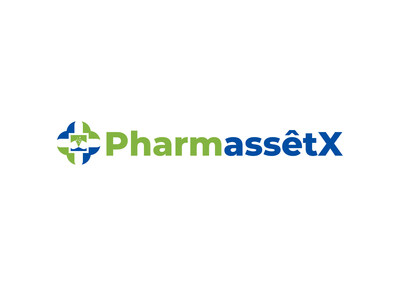Newswise — LOUISVILLE, Ky., Nov. 18, 2024 /PRNewswire/ -- PharmassêtX Inc., a late-preclinical stage pharmaceutical development company, today announced that the US Patent and Trademark Office has acknowledged receipt of the Company's patent application entitled "CRYSTALLINE FORM OF EPIGALLOCATECHIN-3-GALLATE." PharmassêtX is developing the novel form of epigallocatechin gallate (EGCG) as a prescription drug for the treatment of inflammatory bowel disease (IBD).

A groundbreaking study published last year by the Crohn's and Colitis Foundation found that 2.4 million Americans suffer from IBD. "The two most common forms of IBD are Crohn's disease and ulcerative colitis. There are currently no cures for IBD." See the Crohn's and Colitis Foundation website, https://www.crohnscolitisfoundation.org/groundbreaking-study-led-the-crohns-colitis-foundation-estimates-nearly-1-100-americans-has.
The patent-pending EGCG polymorph (solid-state form), under development by PharmassêtX as PSX-514, is initially targeted as a treatment for pouchitis, a rare IBD condition experienced by certain patients who have undergone surgery to remove their large intestine. There are currently no drugs approved in the US for the treatment of pouchitis. Earlier this year the US Food and Drug Administration granted Orphan designation to PharmassêtX for EGCG as a drug for the treatment of pouchitis, providing important financial and regulatory incentives for complete development of a safe and effective treatment.
"The filing of this patent application constitutes a significant milestone along the critical development path for PSX-514," said Terry Minton, Co-Founder and CEO of PharmassêtX. "Our mission as an organization is to improve outcomes and enhance quality of life for IBD patients. With the PSX-514 active pharmaceutical ingredient having attained patent-pending status, we continue to advance more rapidly than expected toward accomplishing that mission."
Novel polymorphs of active pharmaceutical ingredients (also referred to as "drug substances") are highly valued by the pharmaceutical industry, which is facing a precipitous loss of revenue by the end of this decade due to the expiration of patents on current best-selling medications. The reallocation of resources that will be needed to develop additional therapeutics to fill the gap has been described as "tectonic." See "Big pharma's looming threat: a patent cliff of 'tectonic magnitude'," https://www.biopharmadive.com/news/pharma-patent-cliff-biologic-drugs-humira-keytruda/642660/.
Polymorphs that meet the fundamental criteria for patentability – including utility, novelty, nonobviousness, and adequacy of written description – are presumptively patentable under US law. Polymorphs are so difficult to discover that the Court of the Appeals for the Federal Circuit, the highest US appellate court specializing in patent matters, has stated that a person of ordinary skill in the art "could alter any number of variables and still fail to find a polymorph of a particular compound." See GRUNENTHAL GMBH v. ALKEM LABORATORIES LIMITED, https://cafc.uscourts.gov/sites/default/files/opinions-orders/17-1153.Opinion.3-28-2019.pdf.
"Because of the critical importance of this polymorph to the PSX-514 development program, which is designed to provide relief to IBD patients as soon as possible," said David McClure, PhD, JD, RAC, a biochemist, registered patent attorney, and Co-Founder of PharmassêtX, "we placed this application in the hands of the world's leading experts on polymorph patents – the best of the best among pharmaceutical patent attorneys. For this reason, we are hopeful that prosecution of the patent application will be efficient, enabling PharmassêtX to proceed as quickly as possible with PSX-514 development for the benefit of IBD patients."
About PharmassêtX: With a mission to address the unmet medical needs of IBD patients, PharmassêtX Inc. (pronounced "Farm-a-SET-x") is a privately held Delaware corporation founded in Kentucky and with a growing presence in the Greater Boston biotech and life science ecosystem at the Mansfield Bio-Incubator. The Company welcomes substantive inquiries from interested parties.
About EGCG: Epigallocatechin gallate (EGCG) is a natural substance obtained from the tea plant Camellia sinensis. As evidenced by over four thousand peer-reviewed publications just in the past decade, EGCG has become the object of extensive research into its health effects and other properties. See the National Institutes of Health National Center for Biotechnology Information PubChem website, https://pubchem.ncbi.nlm.nih.gov/compound/Epigallocatechin-Gallate.
Peer-reviewed evidence supporting EGCG's safety and effectiveness for an IBD indication was first published in the journal Inflammatory Bowel Diseases, a publication of the Crohn's and Colitis Foundation. A randomized, double-blinded, placebo-controlled, investigator-initiated clinical study of an EGCG-enriched green tea extract showed that patients suffering from mild to moderate ulcerative colitis, a common form of IBD, experienced clinical improvement, including endoscopic improvement, after treatment. No serious adverse events were reported.
Further peer-reviewed evidence of EGCG's safety and effectiveness was gathered in the course of an investigator-initiated retrospective study of pouchitis patients published in International Journal of Colorectal Diseases, a Springer Nature publication. The majority of refractory pouchitis patients experienced complete relief from their symptoms, with no serious adverse events reported.
EGCG has been shown to target NF-κB, a key regulator of mucosal immunity, which promotes the expression of multiple pro-inflammatory genes dysregulated in IBD. Additional effects may include decreased activation of the NLRP3 inflammasome, decreased secretion of pro-inflammatory interleukins, and promotion of intestinal barrier integrity. Studies in relevant IBD models suggest that targeting NF-κB can be an effective strategy in disease management, whether alone or as an adjunct in combination with other therapeutics.
Contact: Terry Minton, CEO, PharmassêtX, [email protected] or (502) 324-5111.
Note: This press release contains forward-looking statements, including without limitation statements about future developments, which are subject to significant risks and uncertainties. Actual future developments may differ materially due to various factors. PharmassêtX Inc. undertakes no obligation to update or revise any forward-looking statement. No reliance should be placed on any forward-looking statement contained in this press release.